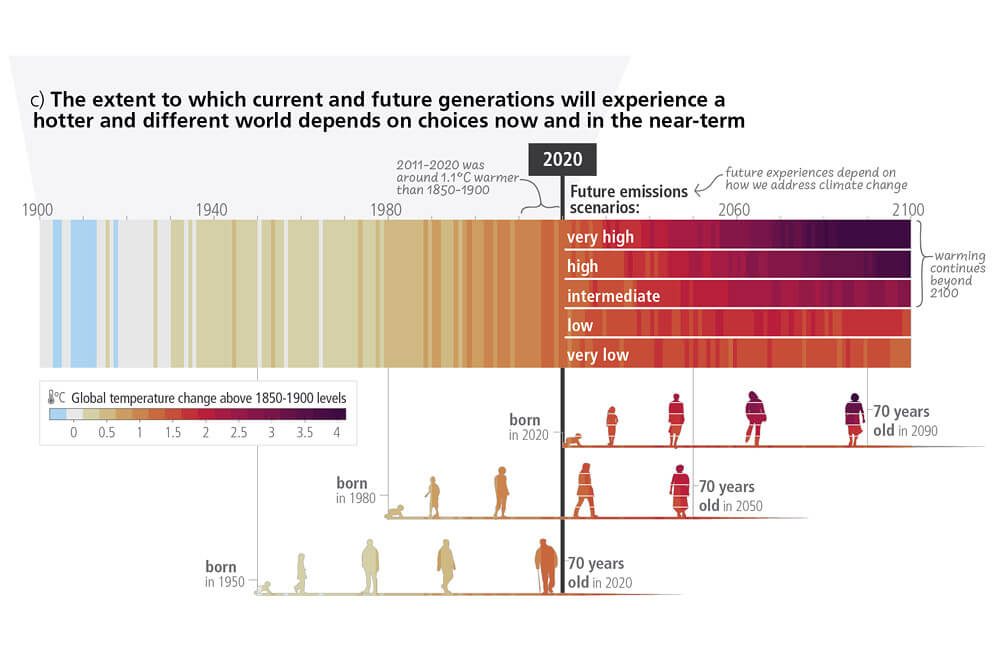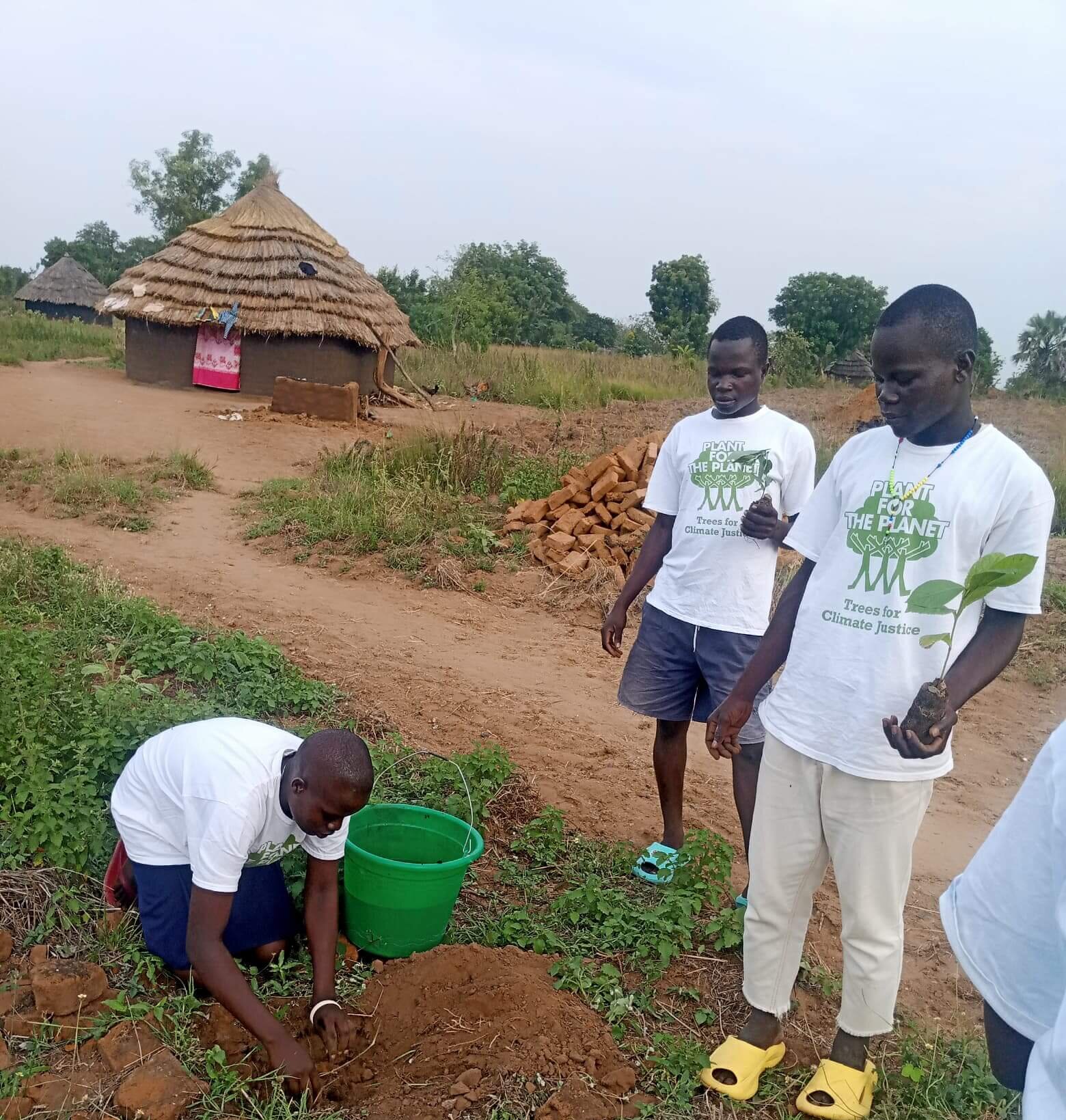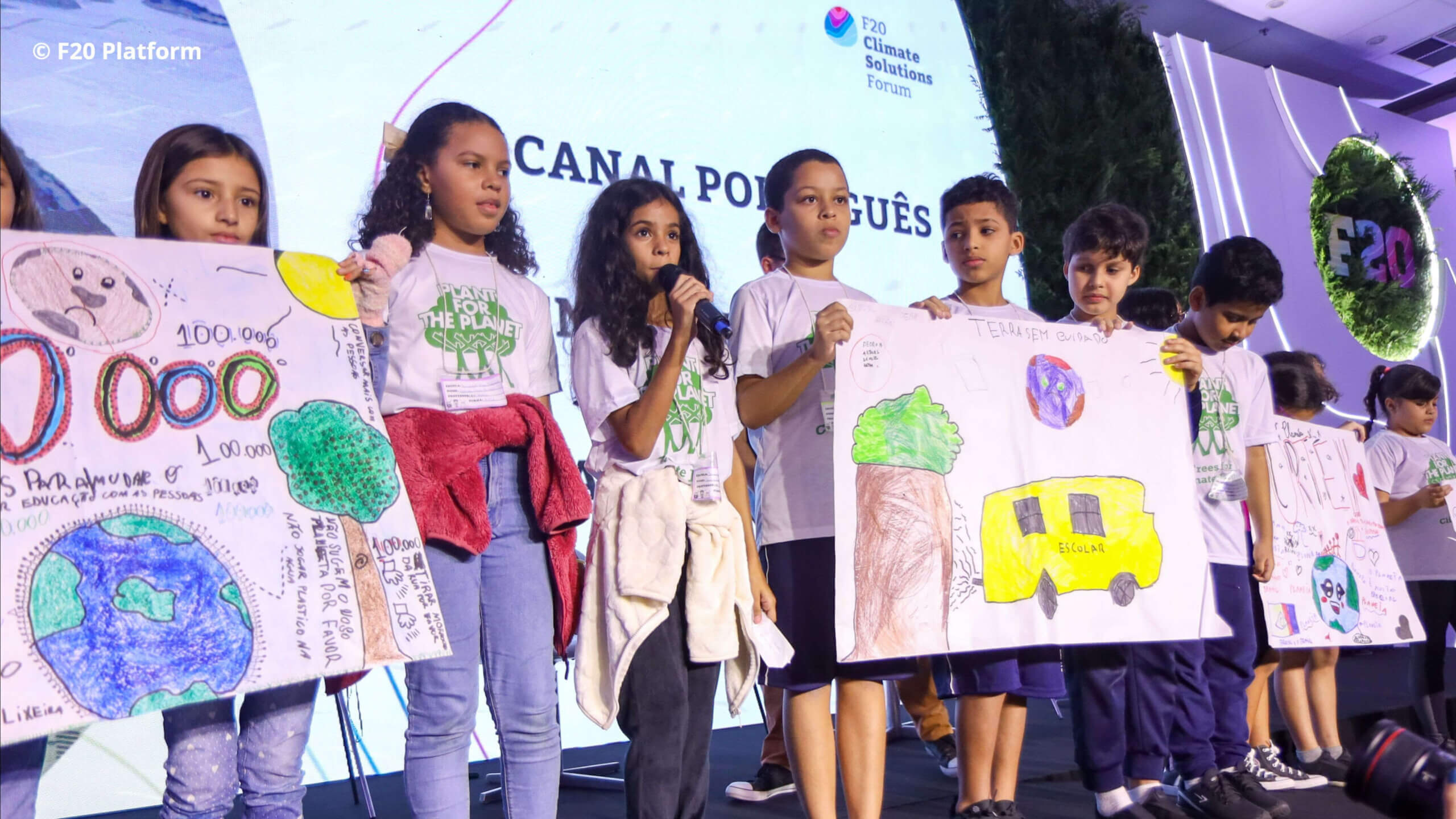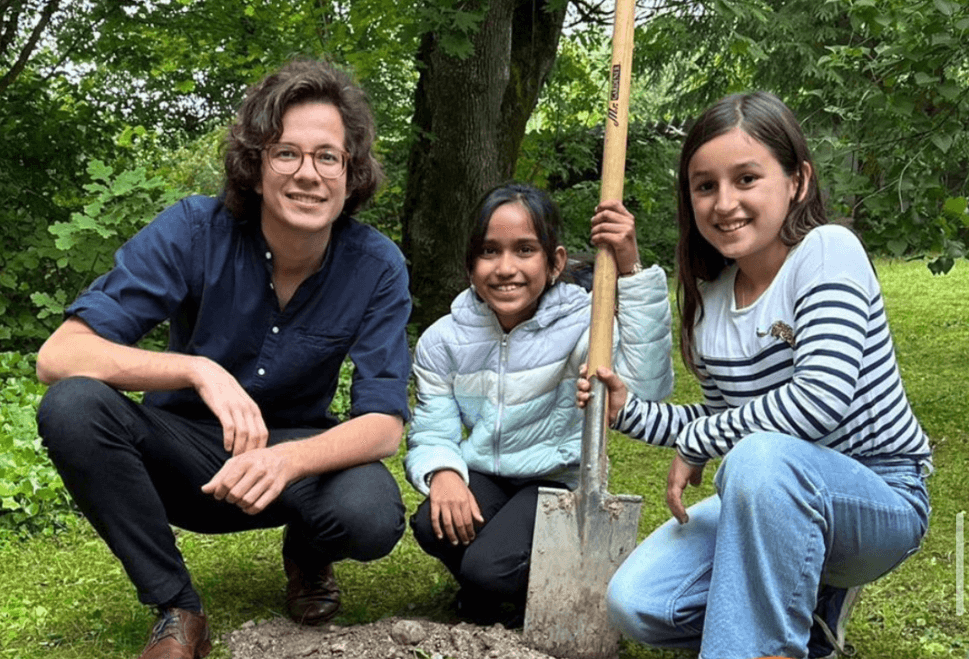
António Guterres, Secretary General of the United Nations, calls the IPCC synthesis report nothing less than a “survival guide for humanity”.
Known as the Intergovernmental Panel on Climate Change, or IPCC, the report was released Monday. The report is the final document of the IPCC’s sixth Assessment Report. It was written by thousands of scientists from all over the world. And they agree: Every ton of CO₂ that is not produced in the first place is the best climate protection and reduces the ecological, social and economic effects of the climate crisis. The answer to the climate crisis is rapid emissions reductions, ecosystem protection and restoration, and a globally equitable energy transition.
However, the Intergovernmental Panel on Climate Change considers it very likely that we will exceed a temperature increase of 1.5°C over pre-industrial times before the end of this decade or the next. Warming is already between 1.09°C to 1.20°C.
The report contains a strong warning that any increase in global warming, however small, will both set-off and amplify multiple and simultaneous hazards. But it also offers hope. If we address the climate crisis now, we can at least mitigate its consequences. “This synthesis report underscores the urgency of taking more ambitious action and shows that if we act now, we can still secure a livable, sustainable future for all,” said Hoesung Lee, chairman of the IPCC, during Monday’s press conference.
Graphic: IPCC Synthesis Report, p. 7.
Earth’s ecosystems, such as forests, play a key role. In the category of “land, water, and food,” preservation of natural ecosystems is cited as the item with the greatest impact in mitigating the climate crisis. After carbon storage in agriculture, restoring forest ecosystems, or with the opposite effect deforestation, is said to be the third largest influencer. Forests offer a tremendous opportunity to reduce greenhouse gas emissions, but also to adapt to the impacts of the climate crisis.
The IPCC synthesis report also emphasizes how essential collaboration with indigenous peoples and local communities is for adaptation and mitigation actions in forests and other ecosystems. Recognizing their rights and including their perspectives in decision-making processes has a valuable impact on the success of such projects.

Graphic: IPCC Synthesis Report, p. 28
With its holistic, scientific approach to restoring and protecting forest ecosystems, Plant-for-the-Planet is making an important contribution to the actions called for by the Intergovernmental Panel on Climate Change:
In the Balam-kú and Balam-kin biosphere reserves on the Yucatán Peninsula in Mexico, through an agreement with the Ministry of Environment, we protect 520,000 hectares of the natural ecosystem from logging. Previously, only two rangers and five government employees were working there for a forest area twice the size of Luxembourg.
In order to combat social injustice and involve the local population, Plant-for-the-Planet provides employment to a many locals as possible – so that in the future they can live from protecting the forest – and thus the climate – rather than from logging.
Where deforestation has already taken place, for example for cattle pastures, we are restoring the rainforest that was originally there – by July of this year, 41 species of native trees will have already been planted. Furthermore, Plant-for-the-Planet will have planted more than 21.8 million trees, mostly on the Yucatán Peninsula and in Volcano Valley in Mexico.
In collaboration with scientists and experts, Plant-for-the-Planet has established a Restoration Research Park through which it is active in the areas of applied forest restoration research and consulting. An important focus is on optimizing the planting density of seedlings of different species, taking into account different soil conditions. For example, researchers* are investigating the use of nitrogen-fixing plants to maximize growth without reducing forest biodiversity. Another area of research is restoring the forest soil microbiome to increase tree survival.
The goal of Plant-for-the-Planet’s Restoration Research Park is to find long-term solutions for forest restoration that will withstand the challenges of the climate crisis and be beneficial to local communities.
After all, the IPCC synthesis report once again calls for the climate crisis to be understood for what it is: an existential threat to us humans that we can still mitigate with forest ecosystems, but the first and foremost means to address it, is and remains, an immediate phase-out of fossil fuels.





